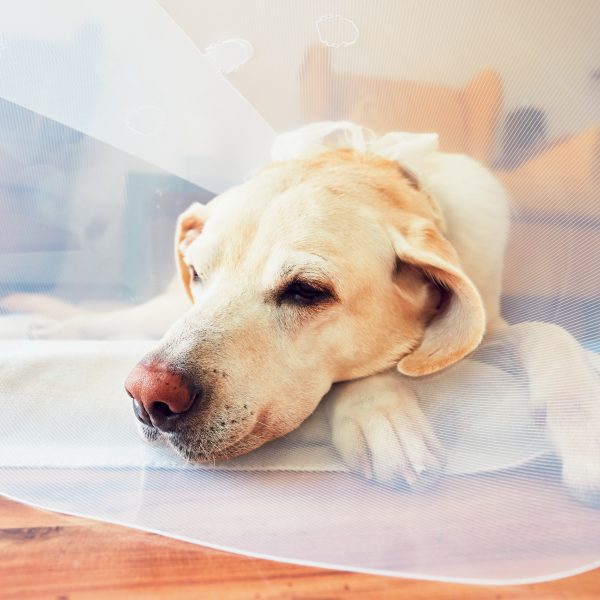How to Care for Your Dog After Surgery
 Caring for your dog post-op can be difficult. Dogs usually still have a ton of energy, but aren’t quite capable of balancing that with their need to heal. Here’s how to care for your dog after surgery to help with a speedy recovery:
Caring for your dog post-op can be difficult. Dogs usually still have a ton of energy, but aren’t quite capable of balancing that with their need to heal. Here’s how to care for your dog after surgery to help with a speedy recovery:
1. Follow the Vet’s Instructions
The first thing to pay attention to is the instructions provided by the vet. These typically include things like making sure sutures stay dry, keeping the area clean, and discouraging too much activity.
The vet will provide specific instructions for caring for your dog’s stitches after surgery and other aftercare instructions. They may also include specific feeding needs or medication schedules. To make sure your pup stays healthy, you’ll need to follow their advice. If anything comes up during the healing process, always call the vet before trying something different.
2. Use a Cone to Prevent Biting
If your dog can’t stop licking or biting their wounds, visit a pet store to pick up a protective cone. Placing the cone on youstr dog’s neck will stop them from being able to reach their wounds, preventing them from reopening them and risking infection. For cases when it’s paws instead of jaws doing the damage, ask your vet about other alternatives to protect the post-op sites.
3. Move Everything to the Ground
Stairs, couches, and beds can be challenging when caring for your post-op pup. One jump can mean a popped stitch or an opened wound – so moving all of your pup’s favorite things to floor-level is a good idea.
If they won’t stop jumping, consider quarantining them, comfortably, to a bedroom without any high surfaces for a few days. If you really want to make their day, camp out on the ground in your bedroom or living room so they can spend the most time with you during recuperation.
4. Give Medication Creatively
After coming home from the pharmacy, most pups will run from the sound of a rattling pill bottle. There are creative ways and tips for giving your dog medication to make sure they get their medication on time and without making too much of a fuss. After all, keeping them calm – and stationary – is of the utmost importance for healing.
Dogs aren’t fond of being forced to do things, so the shut the muzzle and rub the neck process isn’t smooth sailing. Instead, try putting the pill in a cleverly designed snack, or among their kibble bowl. When it’s disguised, your pup won’t mind at all.
Given enough time, and enough love, your pup should be just fine, especially with these tips for how to care for your dog after surgery. Remember to take them in for his follow-up appointments, and if you notice anything out of the ordinary.
